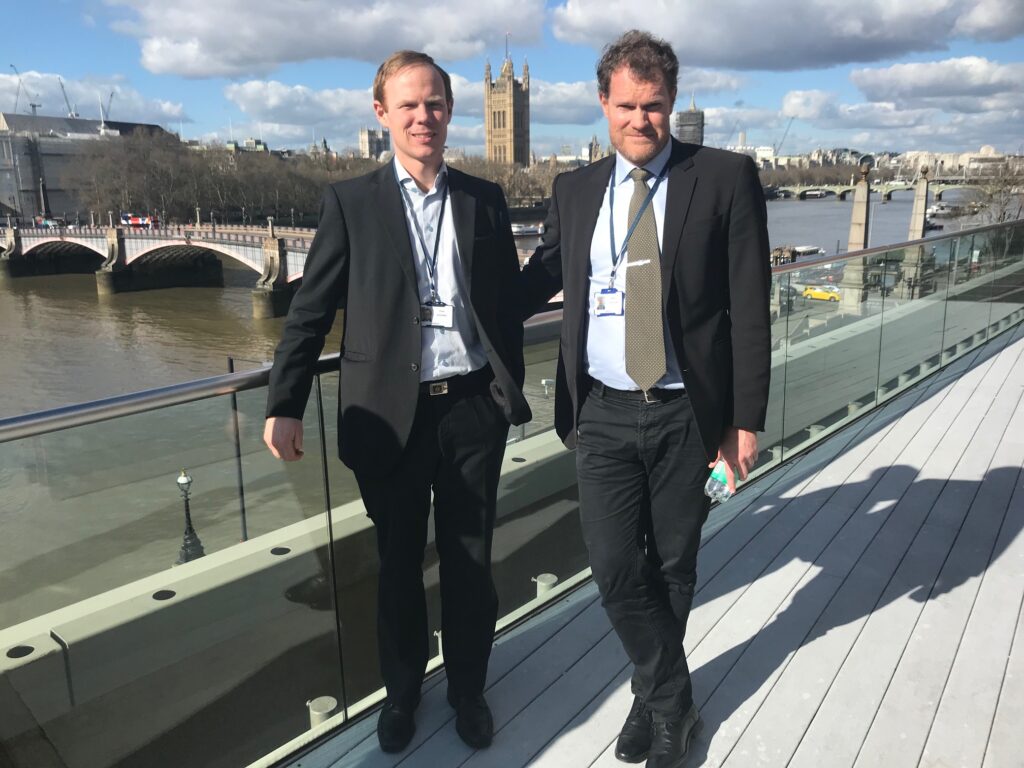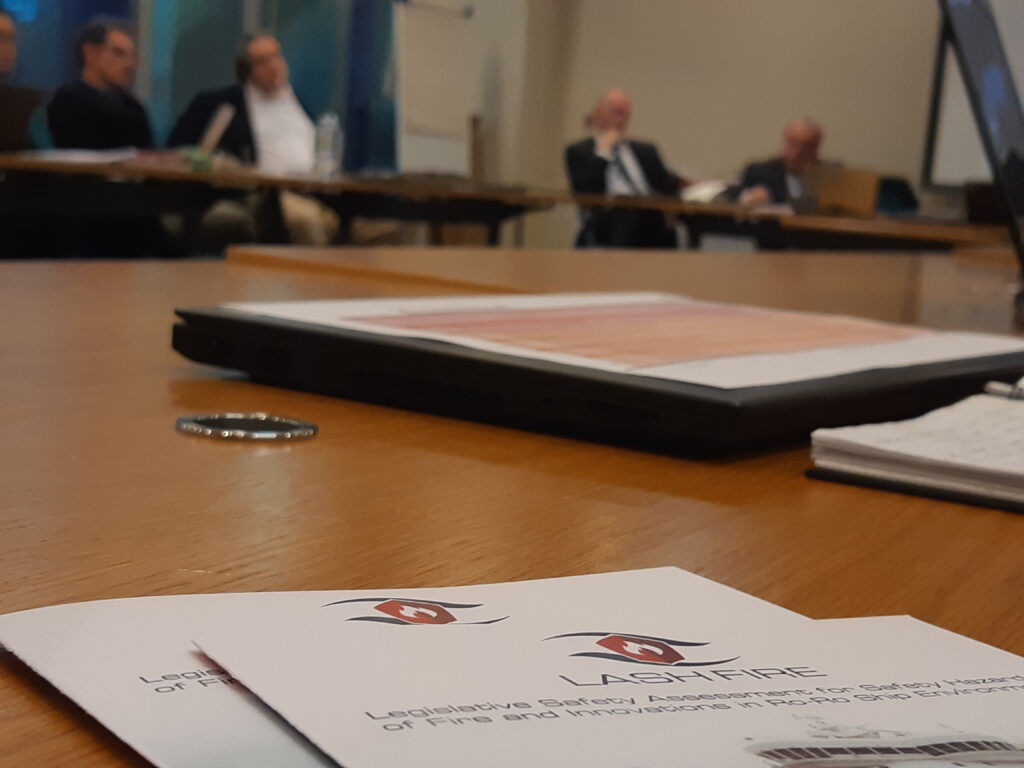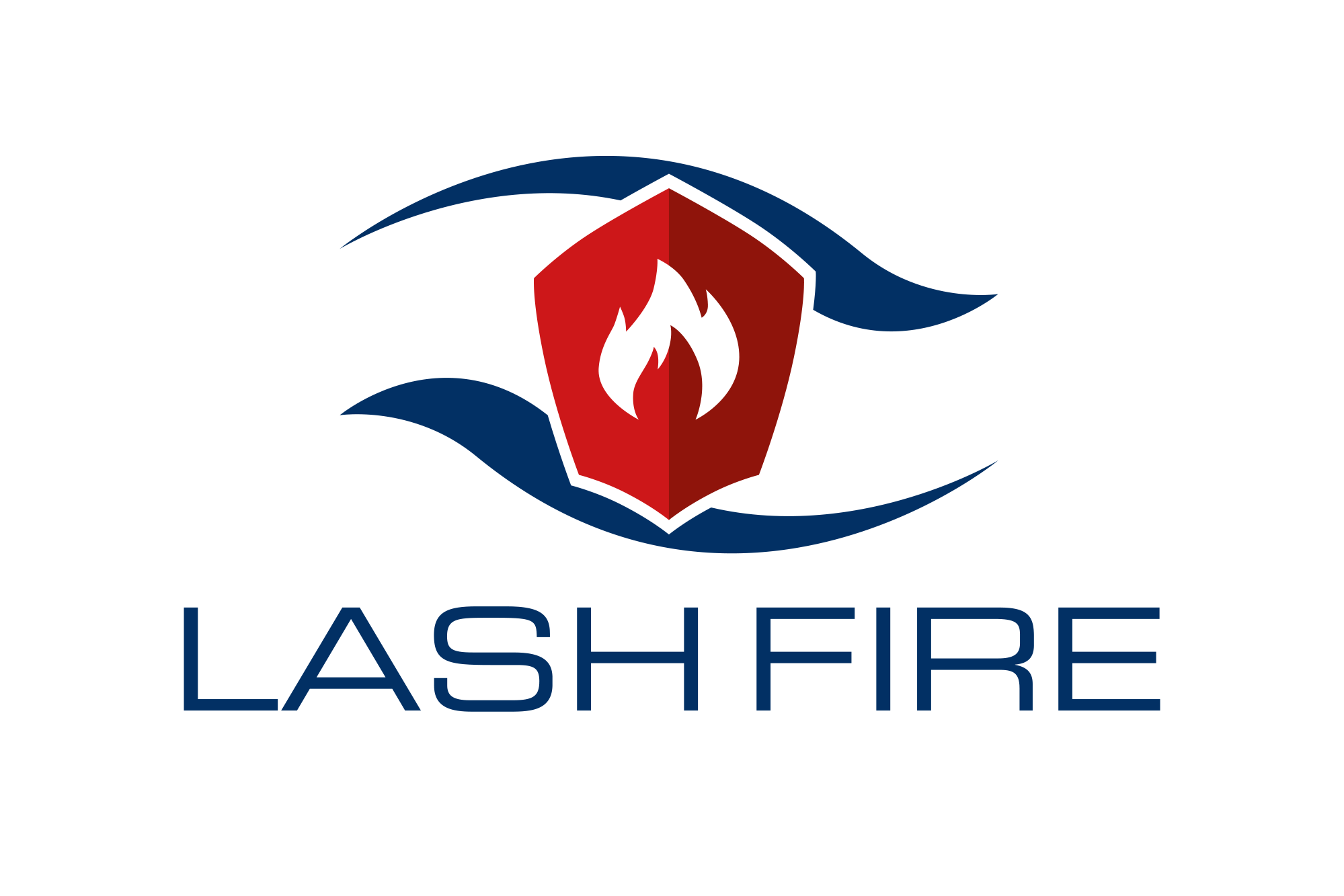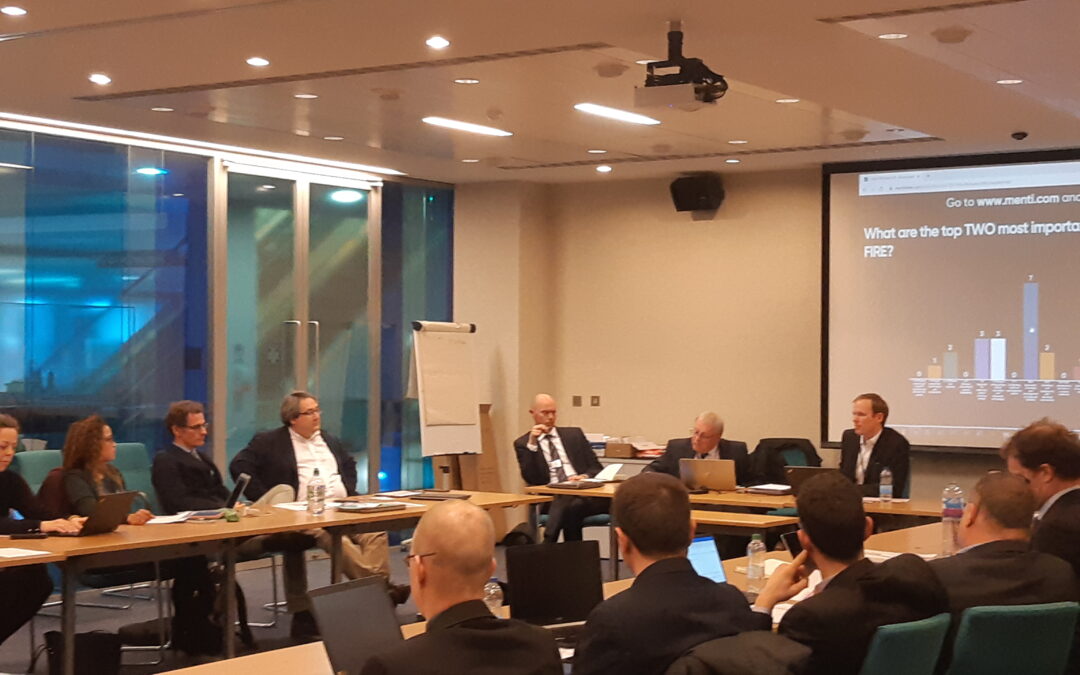The joint kick-off of the LASH FIRE Maritime Advisory Groups (MAG’s) consisting of the Maritime Operators Advisory Group (MOAG) and a (Maritime Authorities Advisory Group (MAAG) took place in London on the 5th March 2020, with 26 participants representing 12 flag states, authorities, operators and yards.
After a general LASH FIRE introduction and a presentation of the Ship Integration and Formal Safety Assessment activities, Martin Carlsson, STENA, presented an overview of how fire hazards associated with charging and carriage of electric vehicles are handled in the project.

In this first out of four planned workshops, the participants mainly discussed general requirements for how fire safety can be improved and the importance of the 20 challenges addressed in LASH FIRE. The positive feedback of the group members and their strong engagement confirmed the importance of the LASH FIRE project to improve the fire safety on ro-ro ships. The MAAG participants representing flag states and authorities agreed to support the work, especially in regards of the Formal Safety Assessment, by sharing data on marine casualties, whereas the operators will inform on requirements and the latest developments as well as challenges and obstacles regarding fire safety on ro-ro ships.
LASH FIRE addresses the essential aspects related to fire safety of ro-ro ships and goes beyond the scope of the current IMO requirements. However, the MAAG and MOAG participants stressed and acknowledged that there is a need to speed up the process to have a timely influence in the current IMO regulatory process.
Fire detection has been identified as a major issue and LASH FIRE is expected to identify innovative detection and preventive technologies. Cargo and fire hazard identification is also considered one of the major challenges, which is addressed as screening and declaration of cargo in two of the LASH FIRE identified challenges.
Finally, the participants also stressed the importance of the design interface, the application of firefighting systems and the human element involved, to which a whole work package is dedicated in the project.
The next MAG workshop is planned as another joint workshop with the operators and authorities at one table next year during the IMO SSE 8 session. In the meantime, the groups will convene virtually on a regular base, exchanging on latest developments and requirements and provide valuable input to the project.


